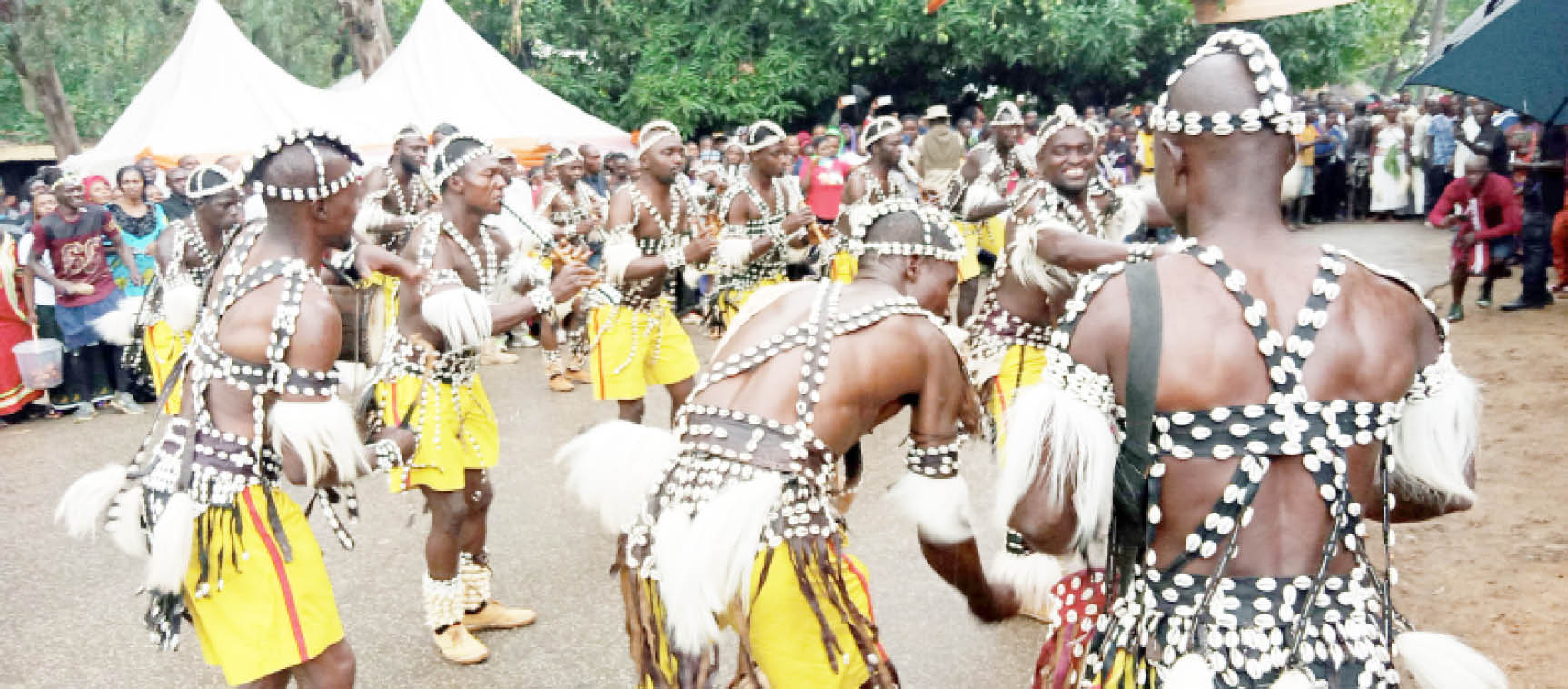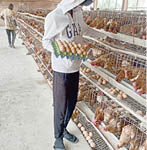A few weeks ago, particularly on May 18, 2022, Plateau people and the people of North Central, Nigeria, rolled out their drums to celebrate in grand style. It was on International Museum Day, a global event that has been personalised by the people of the state.
The people used the day to reveal to the world what culture means to them, what the museum means to them and what the global museum anniversary means to them.
- Know your diabetes status, FG urges Nigerians
- Brain drain: Who is to blame for the mortal exodus of Nigerian doctors?
That Plateau is home of peace and tourism is not in doubt. Many things in the state serve as tourist attraction, beginning from their exclusive cold weather. Of recent, the people must have consciously or unconsciously added the celebration of their culture to the list of tourist attraction in the state.
If you were in Jos, the Plateau State capital, on May 18, 2022 to witness how the people celebrated their culture during the International Museum Day, you would definitely bear testimony to the fact that the people not only love their culture and tradition, but are fully connected to their culture through the Jos Museum.
It is difficult to find in Nigeria where people celebrate the annual International Museum Day like Plateau State, not in any museum. The 2022 edition was something else—the entertainment, display of culture, enthusiasm, passion, participation and the feeling will make you crave to be in Jos the next museum day. The event is not exclusive of any age or social class, it involves the old, the young, the poor and the rich.

When Daily Trust on Sunday made efforts to find out why the people celebrate the museum day in such a frenzy and convivial atmosphere, a 73-year-old Afizere man, Bulus Azi said, “This museum you are seeing, which is situated at the base of this mountain, is the same place our ancient people used to celebrate their traditional deity annually. This very location used to be a temple where our forefathers worship and celebrate their gods before the coming of the white men.
“That was, and still the main reason government decided to situate the national museum here. And even as government took over this site, our people are spiritually attached to this very site. So, invariably, the people are more of celebrating their annual cultural festival more than the International Museum Day.
“Our joy is that the museum is about preservation of culture, and by locating the Jos museum here and preserving our culture at this very place, our people are spiritually connected this location.”
Ngo Esther Dusu also said, “Yes, I agree that our people are now Christians and Muslims, but we will never forget our culture. Our culture lies in our traditional religion. So, on a day like this, we put our modern religions aside and remember our ancestors. This has nothing to do with our faith, we are just celebrating our history, and we have to do it so that our children will know where we are coming from. We have to use a day like this to tell our children how we love our culture, and when they see how we love our culture, they too will be connected to it and keep celebrating it.”
The celebration of culture at the annual International Museum Day is not restricted to natives of Jos, all the ethnic groups in North Central, Nigeria do same. This is because the Jos museum is a reservoir of the cultures and traditions of all the ethnic groups in the Middle Belt of Nigeria.
In addition to the art gallery, the largest section of the Jos Museum holds the Museum of Traditional Nigerian Architecture (MOTNA). That is the section where ancient and pre-colonial styles of houses are preserved.
At Jos museum you can even find the Kano Walls, the Katsina Mosque, Zaria Mosque band, the Night of Benin. This shows that the museum is a storehouse for Nigerian history, cultures and traditions.
Consequently, almost all the ethnic groups in North Central take part is the museum day celebration in Jos, particularly the Tiv, Idoma and Igede people of Benue State, the Alago, Mass and Eggon of Nasarawa State, the Igala people of Kogi State, as well as the Toro people of Bauchi, equally used the day to display their cultures. This, no doubt, made the day unique.
At the edition under review, almost all the over 50 tribes across the 17 local government areas of the state were participants.
The event was professionally coordinated by the curator of the Jos Museum, Mr Fadamiyo Omolayo.
Daily Trust on Sunday found out that due to the number of ethnic groups in the state, and other stakeholders from neighbouring states, the management of the Jos Museum has initiated a programme to make the people the owner of the annual event. They made it in such a way that a particular ethnic group was selected to be featured on the day. For instance, for the 2022 edition, the Afizere people of Jos East Local Government were the star feature of the festival.
For the tribe in focus at each edition, the culture and tradition of such tribe become the emphasis and the brand of the museum for that year. And such ethic group ensured that all the dignitaries attending the event are clad in the traditional colour of the ethnic group in focus. Hence, this year’s edition took the white colour of the people of Afizere.

The chairman of the 2022 edition, the Plateau State Commissioner for Tourism, Mrs Tamwakat Weli was personally in attendance to give the event the seriousness it deserves. She told the jubilant crowd at the event that the annual museum day recently assumed one of the most celebrated events on the Plateau that attract tourists from far and near.
Witnesses of this year’s edition acknowledged that the event had become a leading unifying force that brings all the ethnic groups in North Central together. Most of the dignitaries at the event include traditional rulers of all the ethnic groups from the North Central, accompanied by their cultural groups. This made the event to assume a cultural carnival of sorts.
Major streets in Jos were occupied as the various ethnic groups marched to the museum, venue of the event. In fact, the city came to a standstill.
One of the unique features of the carnival is long trekking. The people of old actually trekked long distances. This year, the Afizere people trekked from their base in Lamingo to Jos city, a journey of about 25 kilometers. They had a very long convoy and procession, holding other road users to ransom.
Participants and onlookers variously described the procession as very entertaining and interesting.
A taxi driver, Mazi Uche, who parked his vehicle and watched the procession with enthusiasm said, “It has been long I saw a culture on display like this. I am impressed.”
Another motorist said, “I would have chosen to be at the museum today if I knew of it earlier. I am not from Plateau, but I like their culture.”
Another unique part of the event was a practical demonstration of the people’s ancient lifestyle. History records Plateau people of old moving about nude or half nude. The people of old wore leaves to cover their private parts in pre-colonial days. Such lifestyle is practically exhibited on such occasion. So you could find people who chose to appear nude or half nude on such days.
A 68-year-old woman and mother of seven was seen at the event nude; and she was proud of herself. In those days, demonstrating the culture of nudity was not limited to the aged as teenage girls and boys also did it. And they were not in short supply at this year’s edition, which reminded participants and onlookers of colonial activities and pre-colonial life of the people.

Interestingly, an average Plateau man does not hide his culture. They do that with pride and sense of satisfaction.
An Ngas man told Daily Trust on Sunday that, “The only thing we hold in high esteem in Plateau State is our culture. We see it as our asset, which we inherited; and we are duty-bound to transfer it to our children. It is a trans-generational thing we can’t afford to break. It gives us joy. Our modern religion cannot stop us. We cannot afford to lose our history. This is the only event that brings all of us on the Plateau together as one.”
The curator of Jos Museum, Fadamijo Omolayo, emphasized on the fact that the annual event had become a platform for unity of the people in spite of cultural barriers. He said, “The International Council of Museums (ICOM) “set up the museum day to create an awareness of the role museums play in the development of the society. And it has steadily gained momentum.
“The 2022 International Museum Day was titled, The Power of the Museum, and one may begin to wonder what power a museum has. It has the power to unite and open the window to our past. The museum has the power to project how we can move ahead. It has the power to build a community through education.
“Through its collections and programmes, a museum stirs the social fabric that is essential in community building, by providing learning opportunities for all. It contributes to shaping, informing and engaging the civil society.
“In Plateau State, for instance, the national museum in Jos has presented a platform for every ethnic group to display their cultural heritage. In this process, we have seen that nations are the same, what probably differs is the way we practise our cultures. In every culture, people die and are burial. People also marry, eat etc. The only difference, therefore, is how you do what you do.
“So I want us to leave here this morning with the belief that irrespective of your culture, we are one in humanity.
“The culture in focus this year was Afizere nation, but other cultures came to celebrate with them by displaying their unique cultures and traditions, kinds of music, dance, traditional attires, cuisine and traditional objects. We encourage all ethnic nations to continue to engage the museum Jos actively so that we can collectively preserve our past and our values. We must preserve our histories for posterity.”
And because it was a day for Afizere, the paramount ruler of the kingdom, the Agwom Izere, Emmanuel Ajiji, was the Father of the Day. He was represented by a traditional ruler, Ada Isaac Azi, who led the Izere nation to the museum.
The monarch was full of gratitude to the curator of the Jos Museum, who gave the Izere people the opportunity to showcase their unique culture.
The guest speaker at the event, Dr James Ajiji of the Federal University, Lafia, called on the federal government to take interest in the development of the culture of the Afizere people, which he said had the potential to become an international cultural hub when fully developed.
Also, the next widely celebrated event after Christmas is Kid Museum Day. There are indications that in the nearest future, a public holiday may be declared in the state for the event based on the interest the state government and stakeholders are showing in it.
A staff of Jos Museum, Joel Fom, told Daily Trust on Sunday that, “The annual event is already generating international interest because of the way and manner the people celebrate it with enthusiasm. Each year, embassies with offices in Abuja, especially European and American missions in Nigeria, send their staff to witness this event. I believe that if the government puts more interest in the development of these cultures, it will attract a huge revenue and international patronage.
“Next year’s museum day is already being planned, and the next ethnic group to be featured will be unveiled by December this year to give them enough time to prepare.”
From Yusufu Aminu Idegu, Jos

 Join Daily Trust WhatsApp Community For Quick Access To News and Happenings Around You.
Join Daily Trust WhatsApp Community For Quick Access To News and Happenings Around You.


